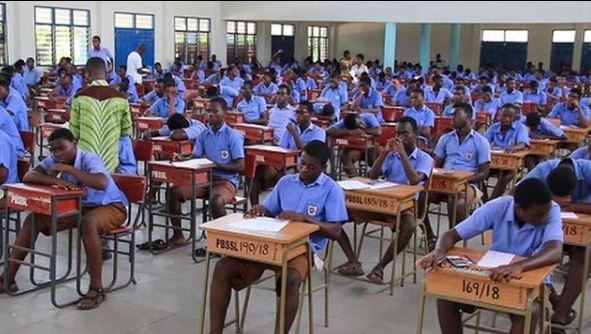The Federal Government has announced plans to enforce an 18-year age limit for students sitting for the West African Examinations Council (WAEC) and National Examinations Council (NECO) exams. This move aims to curb the trend of underage students participating in these crucial secondary school exams, ensuring that candidates are mature enough to handle the academic and emotional demands of the tests.
The Minister of Education, Prof. Tahir Mamman disclosed this when he featured on Channels Television’s ‘Sunday Politics’ program on Sunday night. Mamman explained that the federal government has directed WAEC, which conducts the West African Senior School Certificate Examination and NECO, which oversees the Senior School Certificate Examination to enforce the 18-year age requirement for candidates wishing to take these exams.
This, he said was not a new policy.
He said, “It is 18 (years). What we did at the meeting that we had with JAMB (in July) was to allow this year and for it to serve as a kind of notice for parents that this year, JAMB will admit students who are below that age but from next year, JAMB is going to insist that anybody applying to go to university in Nigeria meets the required age which is 18.
“For the avoidance of doubt, this is not a new policy; this is a policy that has been there for a long time.
“Even basically if you compute the number of years pupils, and learners are supposed to be in school, the number you will end up with is 17 and a half – from early child care to primary school to junior secondary school and then senior secondary school. You will end up with 17 and a half by the time they are ready for admission.
“So, we are not coming up with new policy contrary to what some people are saying; we are just simply reminding people of what is existing. In any case, NECO and WAEC, henceforth will not be allowing underage children to write their examinations. In other words, if somebody has not spent the requisite number of years in that particular level of study, WAEC and NECO will not allow them to write the examination.”
Authorities believe this policy will promote a more standardized and fair assessment process, reducing the pressure on younger students who may not be adequately prepared for such high-stakes exams. The implementation of this age limit is part of broader educational reforms intended to enhance the quality of education and produce graduates who are not only academically sound but also emotionally and socially developed.
Educational stakeholders have been urged to support this initiative, as it aligns with global best practices and is expected to improve overall student performance and well-being.





















